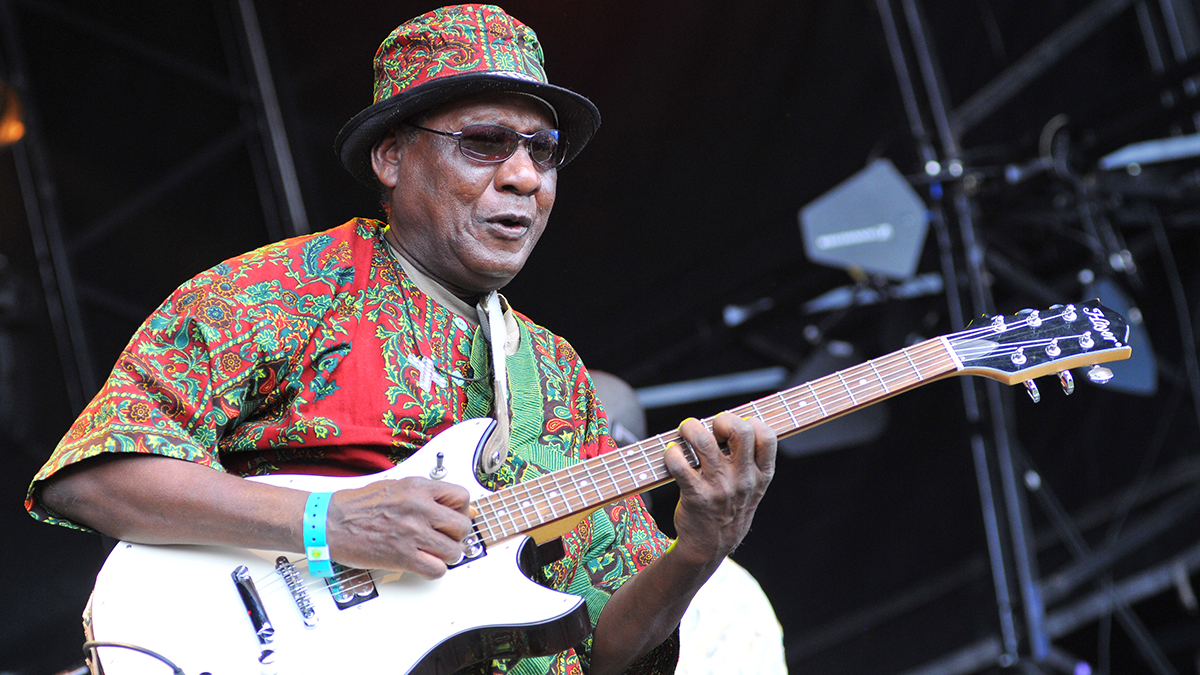The genius of John McGeoch: John Frusciante, Johnny Marr and more pay tribute to the unsung hero of post-punk guitar
Read exclusive excerpts from The Light Pours Out of Me, the new authorized biography of the late Magazine, Siouxsie and the Banshees and Public Image Ltd guitarist
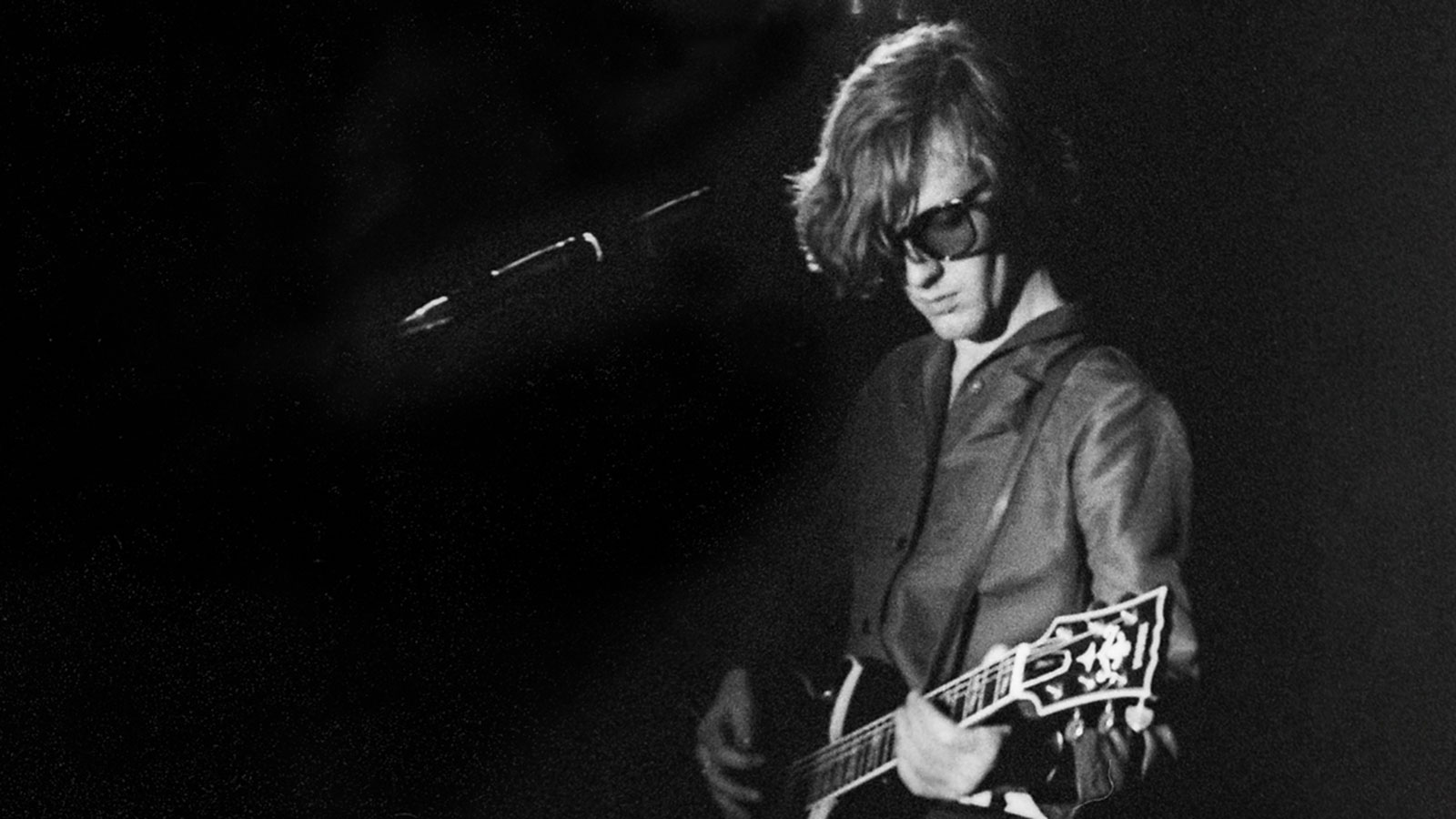
All the latest guitar news, interviews, lessons, reviews, deals and more, direct to your inbox!
You are now subscribed
Your newsletter sign-up was successful
John McGeoch was a truly unique guitarist who quietly elevated most of the UK’s great post-punk exports of the late-’70s and early-’80s. Playing a key role in records from Magazine, Siouxsie and the Banshees and Public Image Ltd, McGeoch’s innovative, textural approach to the instrument helped redefine the guitar in an era that was left to rebuild in punk’s explosive wake.
He had a glittering, forward-thinking career and contributed to several of the era’s most important bands and recordings, but he was rarely in the spotlight. As a player, his name is known by those who know – and his musical legacy has travelled much further than his personal fame.
John Frusciante, Johnny Marr, Radiohead’s Ed O’Brien, The Edge, Dave Navarro and Steve Albini have all cited McGeoch as a key influence. Now a new authorized biography, The Light Pours Out Of Me, sees author Rory Sullivan-Burke tell McGeoch’s story with the input of those who knew him best, personally and musically.
The book features interviews with friends and family, as well as key collaborators and famous fans of the late guitarist.
Below, Guitar World is pleased to be able to share exclusive excerpts from The Light Pours Out Of Me, including tributes from Steve Albini, John Frusciante, Johnny Marr and Ed O’Brien among others, all of whom share their insight on his legacy and playing style.
John Frusciante (Red Hot Chili Peppers)
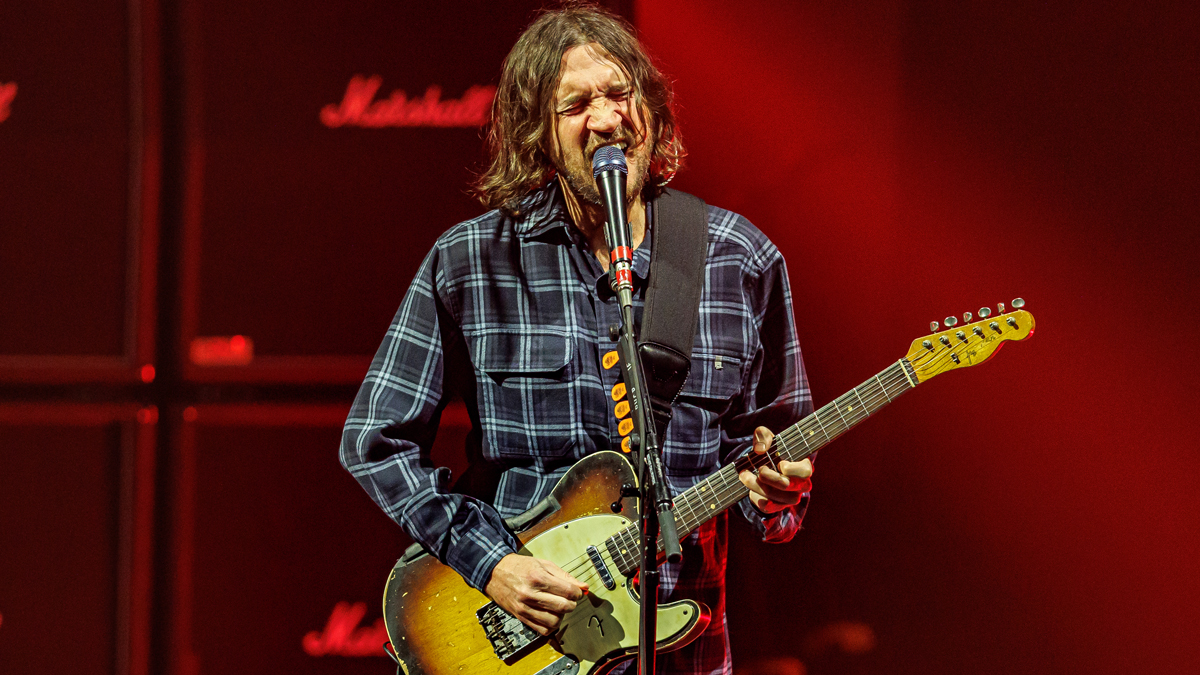
“I don’t know much about McGeoch as a person, but I can say from the perspective of a musician that it really requires a genuine artistic confidence to not overstep those bounds [musically].
“When I was 18 or 19 and starting my band, I had no ability to stay within that and it wasn’t until I was about 20 that I started seeing how you could get more out of trying to stand out less. It’s something that he seems to have understood from the very beginning of his recorded output, and understanding how to adapt to the people that you’re playing with. How to do something, like I say, extremely colourful and creative within those boundaries that if you step outside of them you’re going to be stepping on the other people in the group, and they’re not going to sound as good as they can sound.
All the latest guitar news, interviews, lessons, reviews, deals and more, direct to your inbox!
“He does a lot of fancy things, on [Siouxsie and the Banshee’s 1981 album] Juju especially, there are so many sixteenth note-based guitar parts on there where he’s very comfortable playing at that speed, and where open strings fit into it as well. I tend to think when somebody is playing that comfortably that they are actually capable of going even further than that, but they are staying within what’s comfortable and that has a certain sound as well.
“I don’t want to hear somebody where it’s like they are doing the absolute top limit of what they are capable of doing; you want to have the sense that somebody could be doing more but they’re not – they are restraining themselves in order to be more expressive, and that’s a paradox. I think a lot of guitar players go their whole lives and never get that through their heads.
You want to have the sense that somebody could be doing more but they're not... a lot of guitar players go their whole lives and never get that through their heads
John Frusciante
“Hearing somebody who understands it so well from the start of their career really shows what I believe to be true artistic confidence, and you can’t get that by trying to make people see how confident you are – you have to just be that way inside yourself, and really appreciate the colour and the feeling that music produces.
“It’s incredible how much you can learn about somebody from studying their playing and trying to do exactly what they did and seeing the relationship to the other instruments. I’m always surprised when I hear about musicians that they learn how to play only from playing with other people – I wouldn’t have ever gotten anywhere if I did that. It’s only from studying what people have recorded – that’s where my whole style comes from, that’s where my conception of music comes from, that’s where my songs come from.
“It’s like getting to know somebody as a person even though they’re not there. That’s what it feels like – it feels like they are there and like their heart is there, their soul is there. It all just needs to be decoded and you just try to get better and better at decoding. It’s an incredible thing what recording has brought to the possibilities of musicianship. I don’t know if I would have ever been a musician if recording didn’t exist.”
Johnny Marr

“With all great groups there’s a collective vision that comes from all the members, really. You can’t ignore that the name of the band and the titles of the songs like Permafrost or Motorcade go so perfectly with the music, and vice versa. Those words for me are synonymous with what John’s sound is.
“You know, Permafrost is a great word to describe his guitar sound and then maybe, later, when it gets to the Banshees, you could call it glacial. Not that it was soulless, but it was a long way from the down-home bluesy vibe which is the easy way out. It’s a real sad thing that John McGeoch’s not around to get all the appreciation from musicians and music fans. That’s a really sad thing.”
Ed O'Brien (Radiohead)
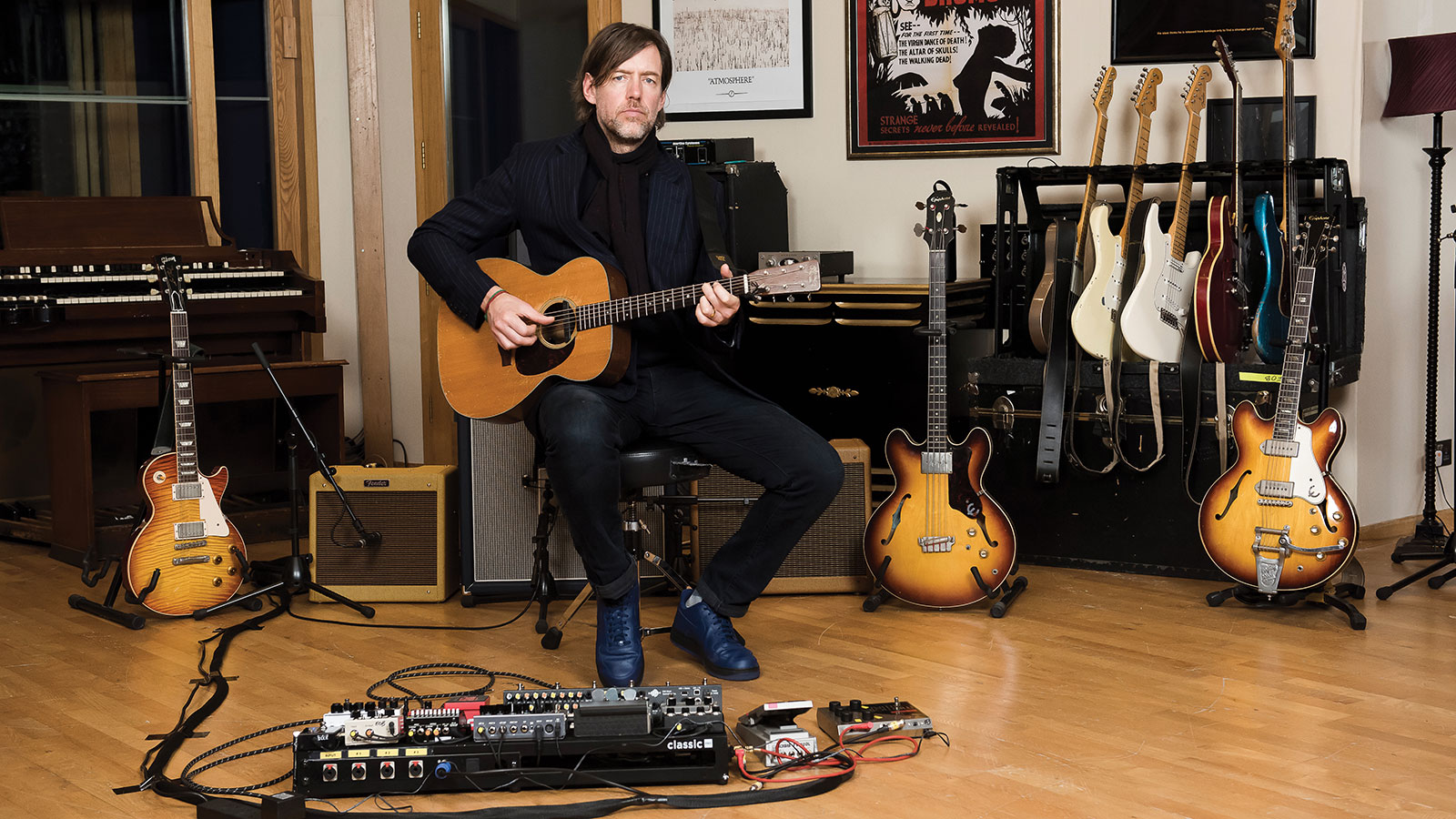
“His playing contribution to Magazine was so good, but I really think he hit his stride with the Banshees, and Juju for me was the epicentre of his playing... so, so good.”
Steve Albini
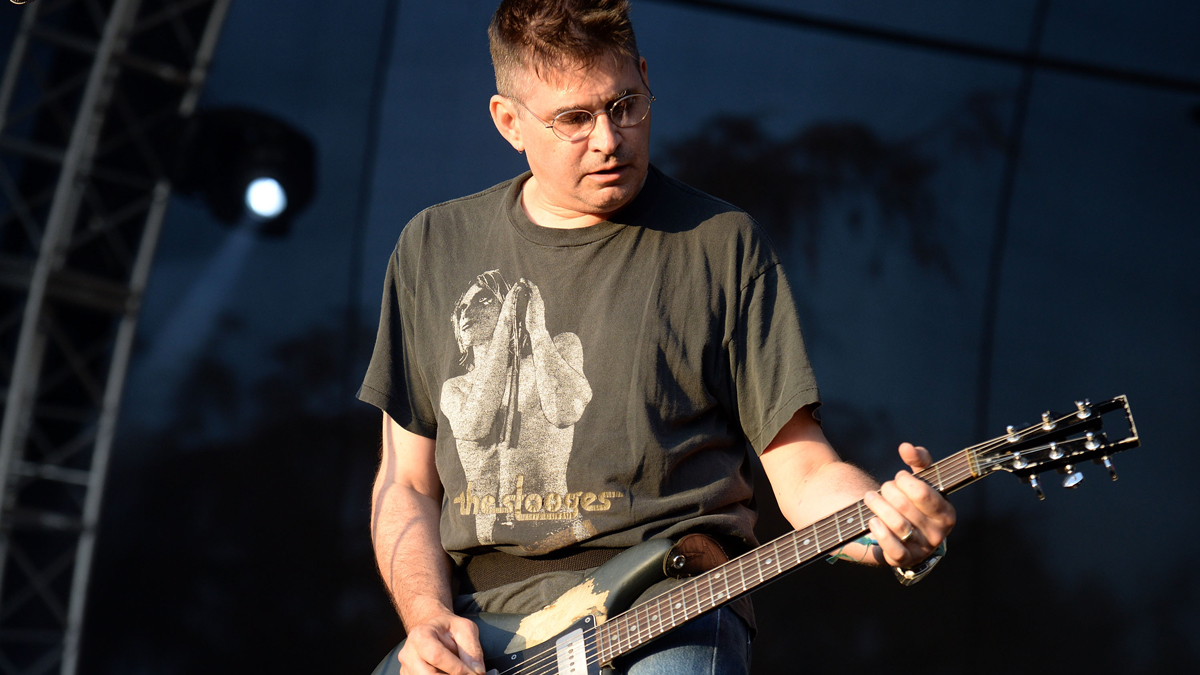
“I admired and sometimes emulated John McGeoch, though I don’t think I ever had any direct interaction with him. In particular, I liked the way his guitar played abstractions of the music rather than the structure of the music, even in a three-piece band setting, like with Siouxsie and the Banshees. I liked that he could play away from the song and let the listener figure out how it fit in.”
Mille Petrozza (Kreator)
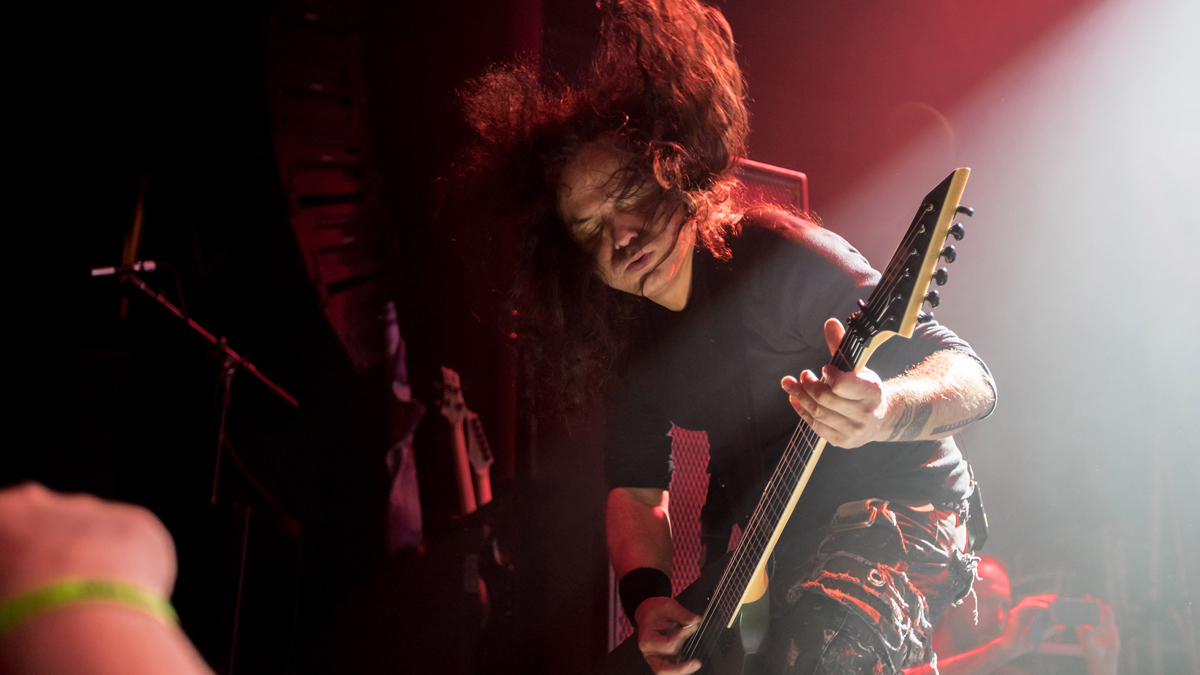
“I’ve always looked up to the sound McGeoch got from his guitar. It had something that was lacking in metal, which was all about the big solos, the big chords. McGeoch brought a dark, chilling atmosphere – almost like it was set in ice.
“It was very expressive and creates images in your mind and I think it is especially true of his work with Siouxsie. McGeoch in that period took you on a journey. It was so influential to me.”
Mark Arm (Mudhoney)

“He was someone that I latched on to immediately with his playing in Magazine, and then with Siouxsie. There are things you could try to say about the music and how it makes you feel, but I just don’t think that would be fully accurate. It can be easy to reduce it all to a game of comparisons and that doesn’t do the music justice.
“He’s got a very unique style, you know. It’s not a style I’ve emulated – I’m not that good! He’s a very original thinker and not an ‘overplayer’ – the little bits where he does a solo are really innovative and super-cool. Whatever scale he was using on Permafrost, it’s brilliant.
“Space is key, a secret ingredient for musicians which shouldn’t be a secret. Knowing when to step back – John had that ability.”
Stuart Braithwaite (Mogwai)
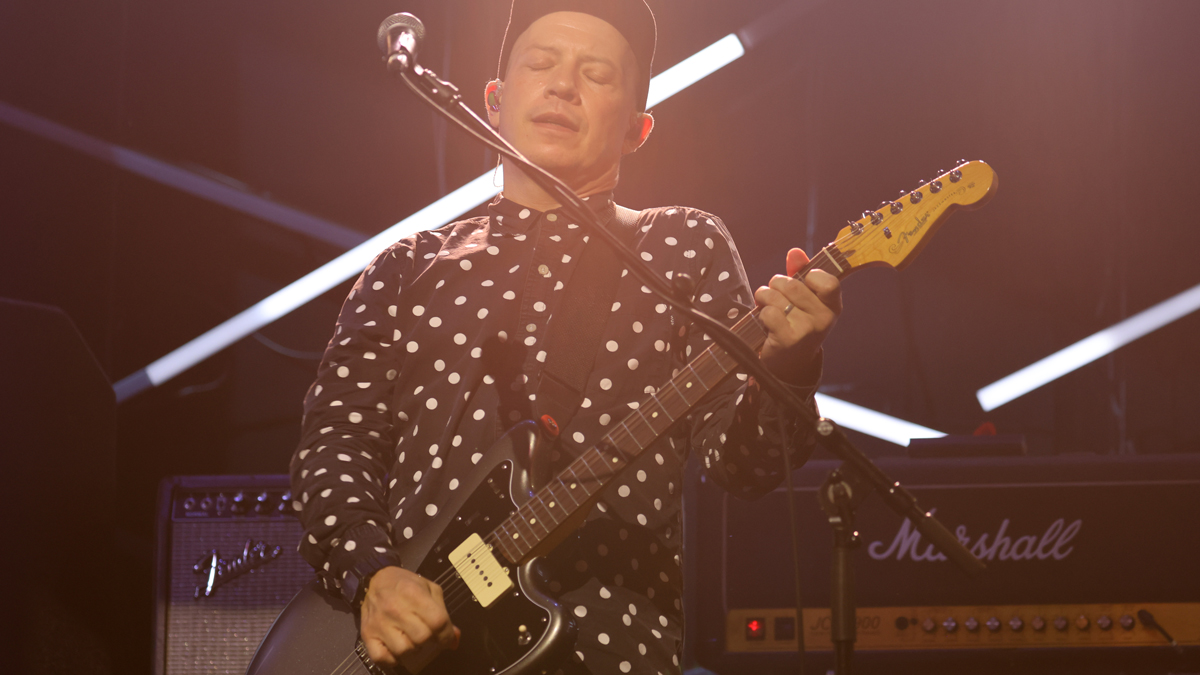
“John McGeoch was the best post-punk guitarist. He played like no-one else, totally distinct and with unyielding imagination. I hear his influence everywhere to this day. A total legend.”
- The Light Pours Out of Me is available now via Omnibus Press. A limited, hand-numbered signed slipcase special-edition will also be available, including a previously unreleased live recording on vinyl. One copy includes a ‘golden ticket’, winning the recipient an Eastwood McGeoch 1000.

Matt is Deputy Editor for GuitarWorld.com. Before that he spent 10 years as a freelance music journalist, interviewing artists for the likes of Total Guitar, Guitarist, Guitar World, MusicRadar, NME.com, DJ Mag and Electronic Sound. In 2020, he launched CreativeMoney.co.uk, which aims to share the ideas that make creative lifestyles more sustainable. He plays guitar, but should not be allowed near your delay pedals.


